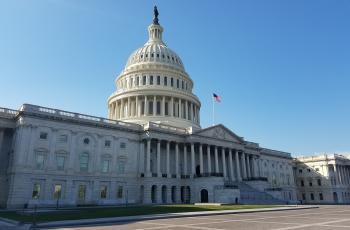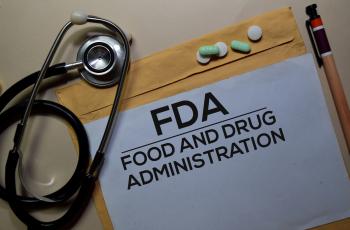News Updates - 4/2/2021
With this series we will bring you the latest news in diabetes advocacy and policy. This week we cover news updates in insurance and access to care, stigma and society, insulin affordability, and government and legislation.
Insurance and Access to Care
COVID relief package opens access to health insurance - learn how to access insurance benefits
The recently passed COVID-19 relief package has been the largest increase in access to affordable health insurance since the passage of the Affordable Care Act in 2010. People with private health insurance, government-sponsored insurance, and those who are uninsured stand to benefit. However, there are steps you may need to take to access these healthcare benefits. Read more here.
Why it matters: Access to affordable health insurance was a major issue in the US long before COVID-19, but the pandemic has highlighted the flaws in our health insurance system. The COVID-19 relief package can make health insurance more accessible for millions of Americans if people know how to access these benefits.
ACA open enrollment period is extended to August 15th
Originally set to end in May, the Affordable Care Act (ACA) enrollment period has been extended to August 15th. The COVID-19 relief package has also increased ACA subsidies, making the marketplace more affordable. If you are uninsured, consider applying to the ACA marketplace here.
Why it matters: Millions of people lost access to health insurance due to COVID-related job loss. The Biden administration opened up a special enrollment period starting in February to encourage people to apply to ACA health coverage. Two weeks into the ACA special enrollment period, 200,000 people had already signed up for health insurance. With this enrollment period extension, millions of people will have the opportunity to get insured.
Lawsuit threatens free preventive care for millions
A lawsuit targeting the ACA is challenging the requirement that preventive health services are free of charge. The Texas federal judge in the case “seems open to ending the requirement that most Americans must receive preventive services” for free. Read more here.
Why it matters: Preventive services are vital to curbing the diabetes epidemic. Health services such as type 2 diabetes screening, blood pressure testing, and nutrition counseling are currently free because of the ACA. If these services are made unaffordable, it will be more difficult to prevent the onset and progression of diabetes.
What's next: According to Kaiser Health News, the Texas judge will likely rule in favor of getting rid of free preventive healthcare and the Biden administration may appeal this ruling.
What you can do: Read more about efforts to dismantle the ACA here.
Telephone visits with doctors work - don’t roll them back
The Centers for Medicare and Medicaid Services and California’s Department of Health Care Services recently indicated that they would reduce reimbursement for audio-only telehealth visits. Telephone visits have significantly helped to improve access for many Californian residents and should be on equal benefit footing as other telehealth visits. Clinicians have noted that this proposed change would “undo gains made in expanding access for the most vulnerable.”
Why it matters: Many patients have relied on telephone calls for doctor visits throughout the pandemic. Reimbursement for audio-only visits have especially helped patients with limited internet access attend their appointments. Reducing or eliminating this reimbursement would make it much more challenging for people with diabetes to connect with their doctors, especially while also trying to stay safe during the pandemic.
Stigma and Society
SNAP benefits are increased by 15% through September
The USDA announced a 15% increase in Supplemental Nutrition Assistance Program (SNAP) benefits, “providing about $3.5 billion in assistance to people affected by food insecurity.” These benefits will continue through the end of September as part of the COVID-19 relief package. This increase in benefits will provide about $28 more per person per month.
Why it matters: In 2018, 20 percent of people with diabetes were food insecure, almost double the national rate of food insecurity. People with diabetes need access to healthy foods in order to manage their blood sugars but they are disproportionately impacted by food insecurity. This increase in SNAP benefits is a small but necessary step towards addressing food insecurity in the diabetes community.
There are disparities in pandemic telehealth use
A recent study found significant disparities in pandemic telehealth use. People living in areas with “limited social resources” were less likely to use telehealth and people living in urban areas were more likely to use telehealth than those living in rural areas. This is partly due to disparities in access to broadband internet.
Why it matters: Access to telehealth helped people with diabetes maintain their healthcare during the pandemic, but not all people could access remote care equally. The temporary expansion of telehealth has made remote care more accessible but these benefits are set to end with the pandemic. Telehealth should be accessible for all people, and investment in broadband internet could help provide better healthcare to those most in need.
What you can do: Join diaTribe Change in advocating for the permanent expansion of telehealth access to keep people with diabetes safe and healthy. Click here to take action.
CDC classifies type 1 diabetes as a high-risk disease for severe COVID-19
The CDC have now classified people with type 1 diabetes as high-risk for severe COVID-19 thanks to advocacy efforts by the diabetes community. This allows all people with diabetes to get vaccinated for COVID-19. The CDC originally prioritized people with type 2 diabetes for vaccination over those with type 1 despite evidence that all people with diabetes are at high risk for severe COVID-19 cases.
Why it matters: COVID-19 has disproportionately impacted people with diabetes, both type 1 and type 2. Access to vaccines will help all people with diabetes avoid severe COVID-19 cases and stay safe.
Insulin Affordability
Medicare negotiations could lower drug prices
Policymakers are hoping to pass legislation that would allow the Department of Health and Human Services (HHS) to negotiate the prices of at least some of the most expensive-brand name drugs covered by Medicare. The public is generally in favor of lowering drug prices but some politicians argue that government interference would curb future innovation and ultimately lead to significantly fewer drugs being developed.
Why it matters: Drug prices in the United States are among the highest in the world, especially insulin. About 8 in 10 Americans believe that drug prices are unreasonably high. Many lawmakers and healthcare experts have noted that every other industrialized nation’s federal governments negotiate prices based on a drug’s clinical benefits. Lower drug prices would allow people with diabetes to get the treatment they need without compromising their financial stability.
What you can do: Join ADA in advocating for insulin affordability and health equity. Support the Affordable Insulin for the COVID-19 Emergency Act and the Minority Diabetes Initiative Act here.
Legislation
COVID-19 relief encourages Medicaid expansion
The Biden administration’s recent COVID-19 relief bill offers increased federal funds over two years for states that adopt expansion of Medicaid for the first time. Since 2014, twelve states have refused to expand Medicaid through the Affordable Care Act, as policymakers in power have claimed that their states cannot afford to pursue the measure. The Biden administration’s offer seems to have incentivised Medicaid expansion and the Wyoming House of Representatives recently passed the measure.
Why it matters: Medicaid expansion has proven to have a positive impact on people with diabetes. Low and middle income people with diabetes are more likely to have access to affordable technologies and medications to help them manage the disease in states that have expanded Medicaid. This incentive to expand Medicaid could help improve access to diabetes care in the US.
Sanders pushes Medicare expansion
Vermont Senator Bernie Sanders is encouraging policymakers to negotiate with drug companies in order to expand Medicare. Sanders hopes to lower Medicare’s eligibility age from 65 to 55 or 60 years old and expand the program to cover any care related to dental, glasses, eyes, and hearing. These changes would be part of the coming infrastructure bill.
Why it matters: Over 21 percent of Medicare beneficiaries have diabetes. According to the CDC, 13.7 percent of people ages 45-65 have diabetes. If the Medicare eligibility age were lowered, many more people with diabetes could access affordable health coverage.


